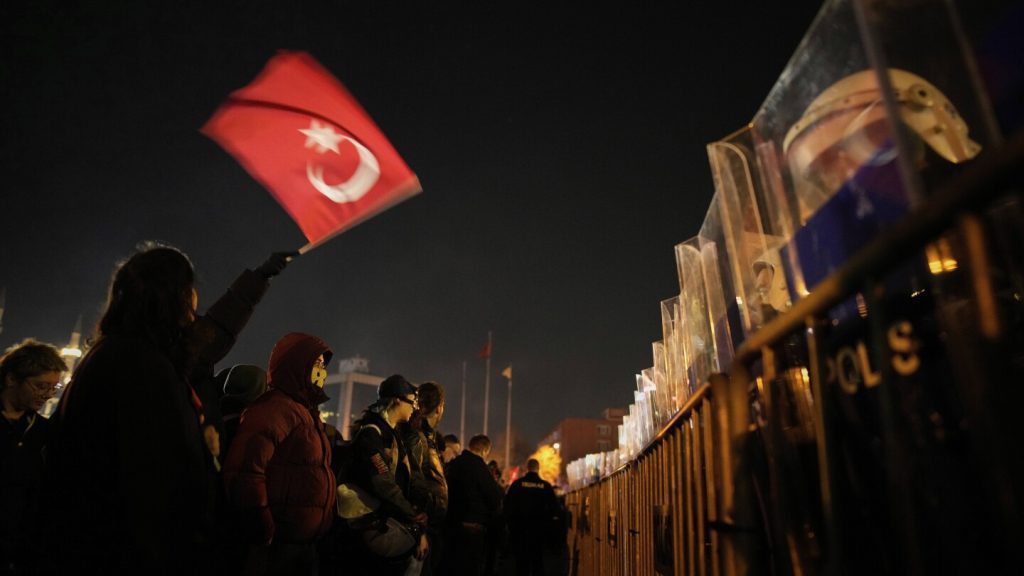ISTANBUL (AP) — Early Thursday, police employed pepper spray, plastic pellets, and water cannons against demonstrators in Turkey’s capital, marking another confrontation in the nation’s largest anti-government protests seen in over ten years.
The protests erupted last week in response to the arrest of Istanbul Mayor Ekrem Imamoglu, a significant opponent of President Recep Tayyip Erdogan. Imamoglu was imprisoned pending a trial on corruption charges that many perceive as politically charged, alongside accusations of terrorism support. The government argues that the judiciary operates independently; however, detractors claim the evidence relies heavily on confidential witnesses and is questionable.
On Thursday morning, students attempted to march and read a statement outside Middle East Technical University, as reported by pro-opposition outlet Halk TV and other local sources. Security forces met them with pepper spray, water cannons, and plastic pellets. This led to a standoff where students took cover behind dumpsters until police advanced to detain them.
Melih Meric, a member of Imamoglu’s Republican People’s Party (CHP), was seen drenched and affected by the pepper spray. “My student friends only wanted to make a press statement, but the police strictly did not allow it; this is the outcome,” Meric stated in social media videos.
Arrests Surpass 1,900
Interior Minister Ali Yerkikaya reported on Thursday that approximately 1,900 individuals have been arrested during eight days of extensive protests across the nation. He stated that 1,879 suspects were detained, including 260 who remain behind bars pending trial. An additional 468 were released under judicial oversight as their cases proceed, while legal actions are ongoing for 662 others.
Some detainees face charges related to drug offenses and assault, and the minister noted that 150 police officers sustained injuries during the unrest. While he did not detail the specific nature of other charges, common accusations have included resisting police and violating prohibitions on public gatherings.
Media Restrictions
In an additional crackdown, eleven journalists were arrested while covering the protests, with at least eight released the following day but still facing charges. Turkey’s broadcasting authority imposed a 10-day airwave ban on the opposition-affiliated channel Sozcu TV, alleging the network incited hatred and hostility through its coverage leading up to Imamoglu’s imprisonment. Other outlets supporting the opposition have also been fined or faced program suspensions.
Amid these developments, BBC journalist Mark Lowen was deported from Turkey following his arrest, having been detained at his hotel for 17 hours before being labeled a “threat to public order,” according to the BBC.
Charges Against the Mayor and Allies
Imamoglu was apprehended during a police raid on his home last Wednesday and subsequently placed in custody. He is facing charges implicated in two investigations concerning the opposition-led Istanbul Metropolitan Municipality, involving allegations of corruption and terrorism support.
The mayor remains the primary contender against Erdogan for the upcoming presidential elections, currently set for 2028 but likely to be moved to an earlier date. Justice Minister Yilmaz Tunc noted that 106 individuals have been arrested across both municipal investigations, with 51, including Imamoglu, currently in custody. The group also consists of municipal officials and business leaders facing allegations such as bribery and extortion, which many believe to be politically motivated. Protesters continue to decry Turkey’s democratic erosion and the declining economic outlook.



